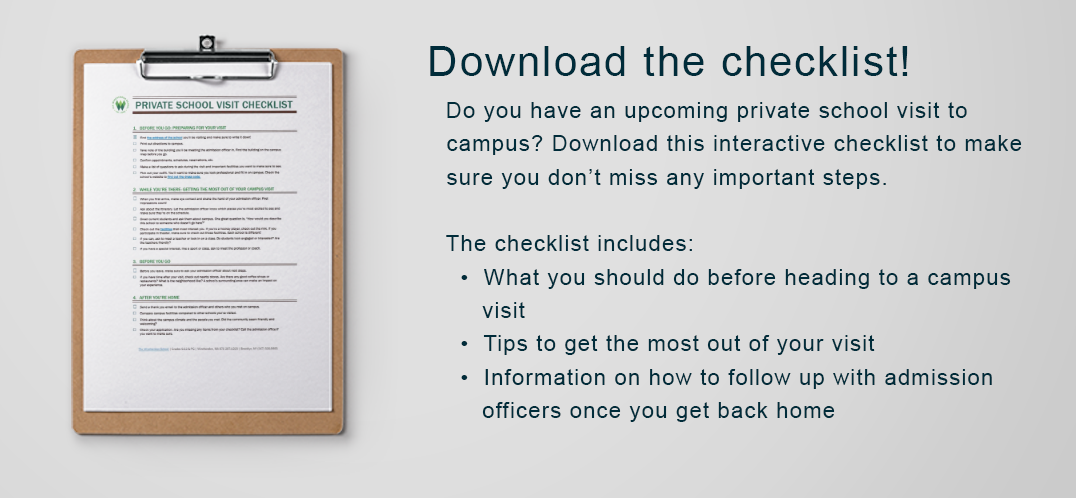Boarding School Interview Questions
Do you have an interview with a boarding school admission officer? Congratulations! Here are a few handy tools and look over a few common interview questions in advance of the big day.
While the interview typically happens face to face on campus, at The Winchendon School it is also possible to arrange the interview via skype with your admission counselor. Whether you are able to attend in person or end up chatting over a computer screen, it is important to pay attention to your communication skills to ensure a positive two-way conversation where both you and your interviewer walk away (or log off) having learned something new and interesting.
Prior to your interview, practice with your family or friends. Provide them with the follow questions and have them ask you in random order:
- How would you describe yourself to someone who didn’t know you? Detail your personality and interests.
- Who is a person from history you most admire? What is a question you would want to ask them?
- What protagonist from a novel do you most closely identify with and why?
- What is one challenge in your life you have had to overcome?
- Where do you see yourself 10 years from now?
- What is a project or an event in your life where you have demonstrated leadership?
- What do you hope to get out of your boarding school experience?
- What are some of your academic strengths? Weaknesses?
- What is the most important thing you have learned in school so far?
- If you could take one book with you to a desert island, what would it be and why?
- What has been your biggest - or most proud - accomplishment in life to date?
- These are common interview questions, but don’t rule out a few signature fun ones depending on your interviewer. Ask your practice buddy to throw out a few curve balls at you, like:
- If you were running out of your home due to a fire, what is the one thing you would grab on the way out?
- Who in your family are you most like?
- If you could start any club at school, what would it be?
Questions like these are often fun and off the cuff, but reveal a lot about your creativity and ability to think deeply about your personality. Try not to respond in one or two words - your interviewer is hoping to get a better glimpse of not just who you are, but your depth and thought process. Importantly, keep in mind that the interview is NOT a quiz - it is designed to be a conversation.
While you practice, be sure to keep your posture and language in check, too:
Be conscious of how often you say ‘like’ or ‘um.”
These are noticeable place holders for your thoughts when your brain needs a moment to catch up, which happens to us all, but can often distract from your point. Even politicians occasionally stumble over their speech, but you’ll notice that they use a slightly more imperceptible “ahh,‘ or even better, just a slight pause to work out their thoughts.
Don’t use overly complex words
Communication should always top complexity in your daily conversations. Unless a word truly adds to your sentence, save it. The best speech writers and notable authors engage their mastery of language by painting vivid images using basic words for complex ideas. Always err on the side of being clear and concise.
Gesticulate.
This may be more difficult via skype, but you can try! Gesticulation is the art of motioning with your hands to supplement your ideas. Using expression in your body language will captivate and engage your listener. Just watch how your favorite celebrities and public speakers talk and you’ll notice they often emote not just with their eyes and words, but with their entire body.
Let your posture do half the speaking for you.
Chin up, shoulders back, feet pointed toward your audience, eye contact on point. Looking down or around the room during a conversation says: “I really don’t care to have this conversation with you.” Your body language is critical to your speech. Don’t let a great thought go to waste: conveying interest, empathy, and attentiveness to the person you are speaking to will always win your audience over, no matter how many times you say “like” or “um.”


